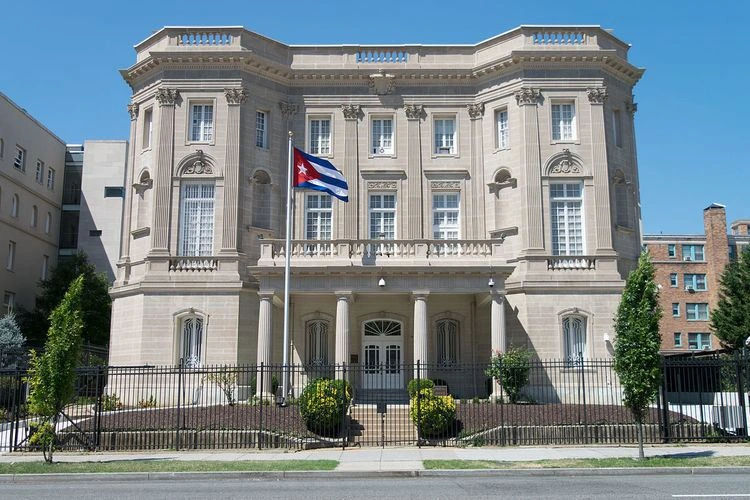Late Sunday, an individual hurled two Molotov cocktails at the Cuban Embassy in Washington, D.C.
Cuba’s Foreign Minister, Bruno Rodríguez Parrilla, confirmed the attack on social media. Fortunately, no embassy staff suffered injuries.
This isn’t a first; a similar incident took place in April 2020. Back then, an attacker fired an assault rifle at the building.
Clearly, the embassy’s security measures need urgent evaluation. Protecting staff and premises should be the priority, not only for Cuba but for all nations.
Diplomatic locations often represent soft targets, vulnerable to aggression.

Even though this attack resulted in no injuries, it’s a warning sign that cannot be ignored.
Given that this is the second attack since 2020, questions arise. Are these isolated events, or part of a larger issue?
If the latter, it poses a direct threat to international diplomacy. The government of the United States must ensure the safety of foreign embassies on its soil.
After all, these buildings are legally foreign territories and must be secure.
Background
Foreign Minister Rodríguez Parrilla’s rapid announcement on social media reflects the urgency and seriousness of the situation.
It serves as an immediate call for action to enhance safety protocols. But let’s not forget, improving security is only a short-term fix.
It’s equally essential to address the underlying tensions that fuel such acts.
There’s also a broader context. Attacks like this one can strain already tense relations between countries.
In this case, Cuba and the United States have a complicated history, to say the least.
Understanding the motives behind the attack could offer valuable insights into larger geopolitical issues.

